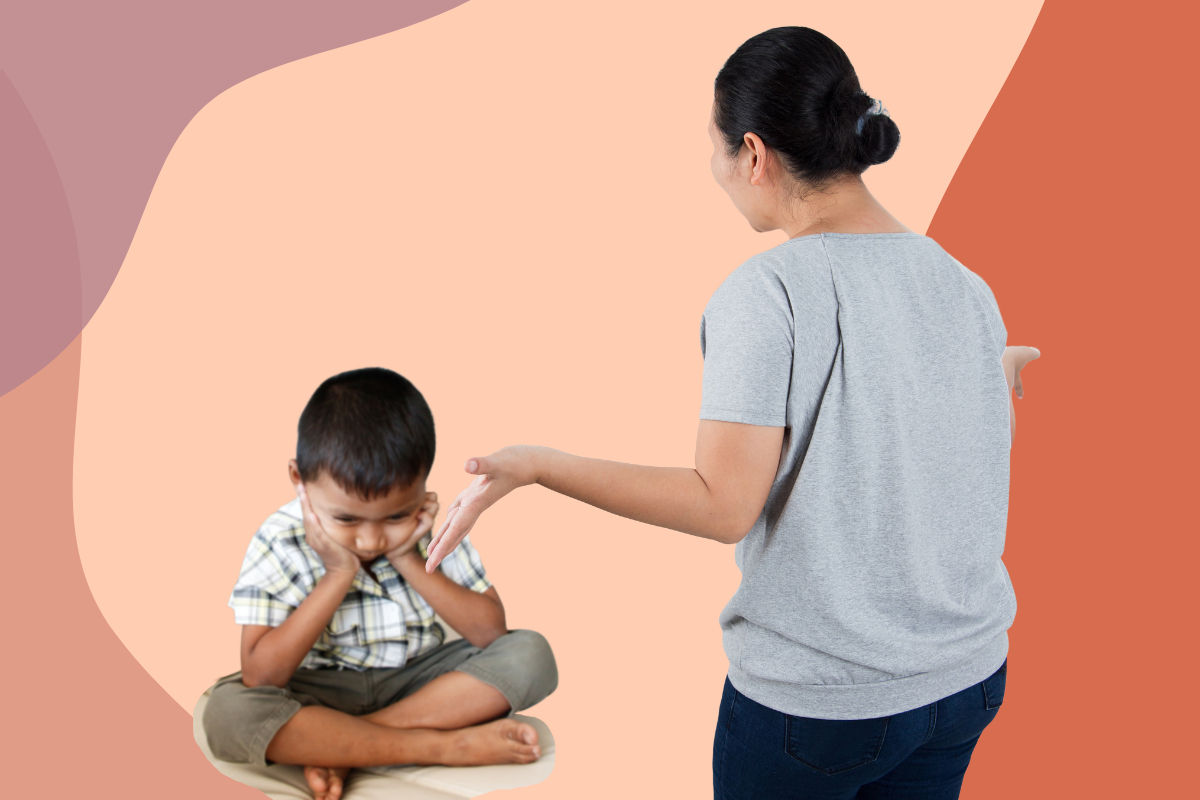

Toxic parents verbally and emotionally abuse their children.
They impose high expectations and excessive demands and behave in ways that cause guilt, fear, or obligation in their children.
Having a bad day does not make one a bad parent.
Unlike normal parenting behavior, toxic parenting involves patterns of behavior that have a negative impact on child development.
The most common toxic behavior of parents is to criticize their child, express self-wishes, complain about the difficulties of raising a child, make unhealthy comparisons, and make hurtful statements.
These kinds of comments can cause permanent damage to the social, psychological, and emotional growth of a child.
Table of Contents
Below, are some of the most common toxic statements made by toxic parents.
Body shaming can have adverse emotional effects, including lowered self-esteem and the development of mental health struggles such as eating disorders, body image disturbance, body dysmorphic disorder, anxiety, and depression.
In the long run, poor self-esteem and insecurity will prevent them from building and maintaining healthy relationships.
A child’s anxiety negatively influences their perception of themselves and the world.
Frequent criticism from parents is linked to the development of anxious children.
Parental rejection can also lead to self-criticism and depression.
Low self-esteem can result from being compared and seen as inferior to others.
As a result of not being valued, esteemed, wanted, desired, chosen, and accepted by their parents, children experience lower self-perceptions and self-worth.
Parents’ differential treatment of siblings can also cause sibling rivalry.
Toxic parents are cruel, harsh, and critical. As a result of their psychological abuse, children feel incompetent, creating a sense of inadequacy and a sense of self that is not worthy of support.
The feeling of shame can lead to an overly self-conscious child, making it challenging for them to build and maintain future relationships.
Research also shows that these awful childhood experiences may lead to various physical illnesses, substance abuse, mental health disorders, and suicide attempts.
Sappington A, Pharr R, Tunstall A, Rickert E. Relationships among child abuse, date abuse, and psychological problems. J Clin Psychol. 1997;53(4):319-329. doi:https://doi.org/10.1002/(sici)1097-4679(199706)53:43.0.co;2-k
Proulx K. Experiences of Women with Bulimia Nervosa in a Mindfulness-Based Eating Disorder Treatment Group. Eating Disorders. Published online December 26, 2007:52-72. doi:https://doi.org/10.1080/10640260701773496
Veale D. Advances in a cognitive behavioural model of body dysmorphic disorder. Body Image. Published online January 2004:113-125. doi:https://doi.org/10.1016/s1740-1445(03)00009-3
Sachs-Ericsson N, Verona E, Joiner T, Preacher KJ. Parental verbal abuse and the mediating role of self-criticism in adult internalizing disorders. Journal of Affective Disorders. Published online July 2006:71-78. doi:https://doi.org/10.1016/j.jad.2006.02.014
Halpern-Meekin S, Manning WD, Giordano PC, Longmore MA. Relationship Churning, Physical Violence, and Verbal Abuse in Young Adult Relationships. Journal of Marriage and Family. Published online January 16, 2013:2-12. doi:https://doi.org/10.1111/j.1741-3737.2012.01029.x
Wood JJ, McLeod BD, Sigman M, Hwang WC, Chu BC. Parenting and childhood anxiety: theory, empirical findings, and future directions. Journal of Child Psychology and Psychiatry. Published online December 13, 2002:134-151. doi:https://doi.org/10.1111/1469-7610.00106
Rapee R. Potential role of childrearing practices in the development of anxiety and depression. Clinical Psychology Review. Published online 1997:47-67. doi:https://doi.org/10.1016/s0272-7358(96)00040-2
Gilbert P. The relationship of shame, social anxiety and depression: the role of the evaluation of social rank. Clin Psychol Psychother. Published online 2000:174-189. doi:https://doi.org/10.1002/1099-0879(200007)7:33.0.co;2-u
McHale SM, Updegraff KA, Jackson‐Newsom J, Tucker CJ, Crouter AC. When Does Parents’ Differential Treatment Have Negative Implications for Siblings? Social Development. Published online May 2000:149-172. doi:https://doi.org/10.1111/1467-9507.00117
Cramer P. Young adult narcissism: A 20 year longitudinal study of the contribution of parenting styles, preschool precursors of narcissism, and denial. Journal of Research in Personality. Published online February 2011:19-28. doi:https://doi.org/10.1016/j.jrp.2010.11.004
Coates D. Impact of Childhood Abuse: Biopsychosocial Pathways Through Which Adult Mental Health is Compromised. Australian Social Work. Published online December 2010:391-403. doi:https://doi.org/10.1080/0312407x.2010.508533
Ney PG, Fung T, Wickett AR. The worst combinations of child abuse and neglect. Child Abuse & Neglect. Published online September 1994:705-714. doi:https://doi.org/10.1016/0145-2134(94)00037-9
Disclaimer: The content of this article is intended for informational purposes only and should not be considered medical advice. Always consult your healthcare provider for medical concerns.

Parenting For Brain is a website offering science-based parenting advice. It empowers parents with easy-to-understand parenting information and evidence-based guidance. Parenting For Brain was founded by Pamela Li in 2017. Pamela is the Founder and Editor-in-Chief. She specializes in various aspects of science-based parenting, including pregnancy, parenting styles, child development, child psychology, and childhood trauma.
Prenatal care throughout pregnancy is important for the baby's healthy growth. Prenatal care includes visiting your OB-GYN, taking prenatal vitamins such as folic acid, and reviewing medications with your doctor.
Parenting styles during the formative years significantly affect a child's development. The four parenting styles studied most in child psychology are authoritative, authoritarian, permissive, and uninvolved.